What Is a Digital Wallet and How Does It Work?
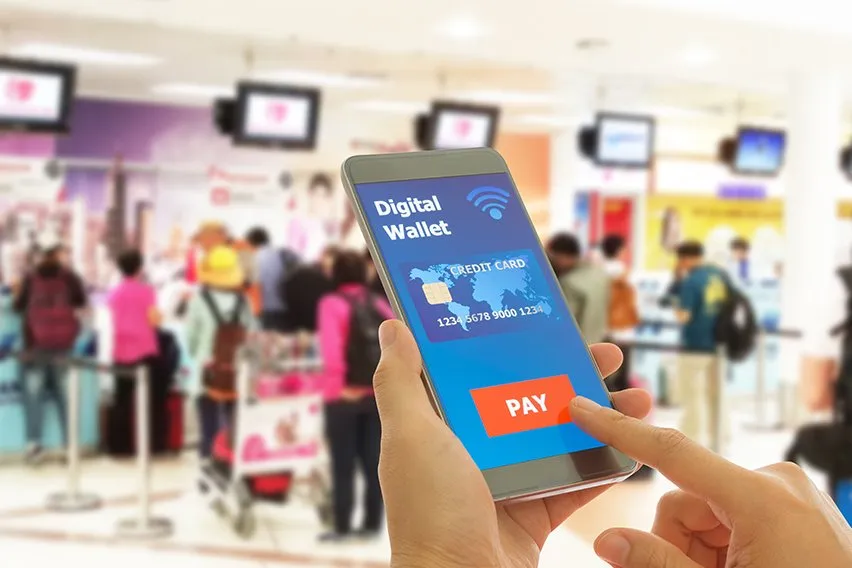
Digital wallets offer a convenient way for customers to make purchases and send money on the go. As long as users have a reliable internet connection, they can use digital wallets to store and share payment data.
Thanks to their ease and security features, digital wallets are growing in popularity. They offer a range of functions from storing credit card and bank account information to enabling contactless payments at physical and online retailers.
We’ll explore how digital wallets work, their security features, and different types of digital wallets. We’ll also take a look at the pros and cons of digital wallets to help you find the best fit for your needs.
Key Takeaways
- A digital wallet stores customer payment information for online and in-store purchases.
- Digital wallets use QR codes, Near Field Communication, or Magnetic Secure Transmission.
- Digital wallets are generally considered safer than traditional credit cards.
- Closed Loop, Semi-Closed Loop, and Open Loop digital wallets offer different payment freedoms.
- Seamless transactions and enhanced security make digital wallets popular.
Table of Contents
- What Is a Digital Wallet?
- How Digital Wallets Work
- Are Digital Wallets Safe?
- Types of Digital Wallets
- Examples of Digital Wallets
- Advantages of Digital Wallets
- Drawbacks of Digital Wallets
- Seamless Payment Solutions with FreshBooks
- Frequently Asked Questions
What Is a Digital Wallet?
A digital wallet is an application that safely stores payment information so users can make purchases without physical cards. Information is stored in the cloud, which means that digital wallets require an internet connection to conduct transactions.
Digital wallets can be used on computers or mobile devices like smartphones. These mobile wallets are a subset of digital wallets and are popular for both online and in-person shopping.
The use of digital wallets is rising thanks to their convenience and security. Users can connect credit and debit card information and bank account details for easy payments. Digital wallets can also store ID cards, loyalty cards, coupons, and event tickets so users can access everything from one application.

How Digital Wallets Work
Digital wallets store your payment information securely in the cloud. They use magnetic signals and wireless technology to share customer payment data with the vendor’s payment processor to complete the transaction. Digital wallets rely on 3 primary technology features:
- Near Field Communication: Near Field Communication (NFC) uses a device’s electromagnetic signals to transmit payment information securely from a mobile device to a payment processor. The customer holds their device close to the processor to create the connection. Popular digital wallets like Apple Pay and Google Pay use NFC.
- Magnetic Secure Transmission: Magnetic Secure Transmission (MST) creates a magnetic signal similar to the one used by magnetic strips on credit cards. The vendor’s card reader interprets this signal to process payment. MST is primarily used by older Samsung mobile devices and is less common with newer digital wallets.
- QR Codes: Quick Response (QR) codes are a type of barcode that customers can scan with the camera on their mobile device. This triggers the payment process through their digital wallet app. Any device with a camera and internet connection can use QR codes as a payment system.
The payment process for all of these technologies follows a similar procedure. The customer initiates payment by holding their device near the processor or scanning the QR code. They are then prompted to accept the transaction with their chosen payment method and their information is transmitted securely to the merchant. The merchant’s payment gateway processes the transaction and the merchant receives payment to their bank account. This process typically only takes a few seconds, making it quick and easy.
Are Digital Wallets Safe?
A good digital wallet should come with a robust set of security features to protect customer data. These security features include:
- Encryption: Encryption protects the passage of data from your digital wallet to the payment processor. Regularly updating encryption software helps protect against fraud.
- Multi-Factor Authentication: Authentication features help check the customer’s identity before processing payment. The best digital wallets will ask for 2-factor or multi-factor authentication before allowing a transaction to proceed.
Types Of Digital Wallets
Digital wallets are divided into 3 types that offer different levels of purchasing and banking flexibility.
Closed Loop Systems
Closed Loop Systems are a type of digital wallet created by a specific service provider for use with only that provider. An example would be Amazon Pay, which allows users to store and spend funds exclusively with Amazon. Another common Closed Loop system is the Starbucks app, where customers can load a certain amount of funds to spend through the app.
Closed Loop wallets enable users to store money and information the same way they would with any digital wallet. The difference is that transactions can only be conducted with one store or provider. Any funds from cancellations or returns go back to the user’s Closed Loop wallet.
Semi-Closed Loop Systems
Semi-Closed Loop Systems allow customers to use their digital wallet with an approved selection of merchants. Examples include Google Pay and Samsung Pay, where customers can make purchases from vendors who have agreements with these companies.
Semi-Closed Loop wallets require merchants to make agreements with the digital wallet provider to accept digital payment methods. This enables customers to access a greater number of online and offline stores, but it may come with fees for the merchants.
Open Loop Systems
Open Loop Systems enable customers to access a wide array of merchants and use their digital wallets like credit or debit cards to manage banking transactions. Customers can transfer money, access their bank account, and withdraw money from ATMs just as they would with a physical wallet.
Open Loop wallets are provided by banks or companies that partner with banks. These include Apple Pay and PayPal which offer a wide array of transaction services in addition to standard purchasing from online and offline merchants.
Examples of Digital Wallets
There are many digital wallets available for everyday use. Some of the most popular digital wallets include:
PayPal
PayPal and its accompanying mobile wallet app PayPal One Touch offer a wide array of fund management and payment features. Users can send and receive money in domestic and foreign currencies using their desktop, laptop, tablet, or smartphone.
PayPal is an Open Loop System, meaning customers can access an unrestricted selection of vendors. They can also link PayPal to a credit card or bank account to send and receive money directly from their banking institution. This makes it easy to manage online payments or to use the mobile wallet for in-person transactions. PayPal One Touch is available for iOS and Android mobile devices.
Venmo
Venmo allows users to send and receive payments to other users with Venmo accounts. It’s geared towards social monetary transactions, making it a popular choice for people splitting bills or sending and receiving money between friends.
Venmo is compatible with both iOS and Android devices. It also lets users link bank accounts and credit cards for different money sources. Users can directly deposit funds received into their bank account from the Venmo app. Venmo now also allows customers to make purchases from vendors that accept Venmo Debit.
Apple Pay
Apply Pay is an Open Loop wallet that allows Apple users to make online and in-store purchases. For in-store buying, Apple Pay uses Near Field Communication technology so customers can hold their Apple device near the payment terminal to complete transactions.
While Apple Pay enables users to access a variety of merchants, the digital wallet is only compatible with Apple devices. This includes iPads, iPhones, and Apple watches. Apple Pay includes robust security features and requires users to unlock their devices before making a payment.
Advantages of Digital Wallets
Digital wallets offer several advantages compared to traditional buying systems, including faster transactions, improved security, and spending perks.
Streamlined Transactions
Digital wallets are especially popular for the speed and convenience they bring to online and in-person transactions. Contactless payments allow customers to make purchases in seconds with their mobile devices through secure, reliable payment processors.
Digital wallet apps also eliminate the need to carry physical credit and debit cards. Users can manage their banking information, cards, identification, tickets, and other essentials from one versatile app.
Many digital wallet payments enable purchasing from anywhere, including while traveling. Customers can access funds, make payments on the go, and purchase their favorite products without having to go to the store.
Enhanced Security
Most digital wallets offer an elevated level of security compared to traditional credit and debit cards. Rather than simply swiping or tapping a card, digital wallet users are generally required to input a PIN, password, or biometric data to access their digital wallet before making transactions.
Digital wallets also offer security features on the provider side, including encryption for secure data processing. Users can also choose dual-factor and multi-factor authentication options that require them to verify their identity with an external app, phone number, email, or other confirmation system. These enhanced security factors help prevent theft and fraud.
Additional Features and Benefits
In addition to offering a quick and secure alternative to traditional payment methods, many digital wallets include features and benefits to help customers track their spending and manage their funds. Digital wallets may integrate with budgeting tools so users can automatically track their spending and create custom budgets.
Some digital wallets also include their own loyalty programs or integrate with external loyalty programs to help customers earn points and perks. These encourage users to make purchases through the app or with dedicated vendors, increasing customer and merchant loyalty.
Drawbacks Of Digital Wallets
Digital wallets are widely used and considered safe, but they have some drawbacks like limited acceptance, the need for an internet connection, and minor security risks.
Limited Acceptance
Although digital wallets are rapidly growing more popular, there are still some merchants who don’t accept these payment methods. Purchasing from these vendors may require users to bring credit cards, debit cards, or cash.
Different types of digital wallets also impact merchant acceptance. Closed Loop and Semi-Closed Loop systems may limit which vendors a customer can access. For this reason, many people choose to have several digital wallets—some dedicated to specific vendors if they want to gain perks or loyalty points and other more open digital wallets for general spending.
Reliance On Technology
Most digital wallets can be used for both online and in-person transactions, but they require a working internet connection to send payment information. If customers don’t have access to the internet, or if their smartphone runs out of data, they may have difficulties accessing their digital wallet.
Some users choose to have their digital wallet only on their home devices like desktop computers so they can conduct online transactions. Using digital wallets on different devices offers a range of options according to internet connection and reliability.
Security Concerns
While digital wallets generally have a high degree of security, it’s still important for customers to practice good security habits in case their device is lost or stolen. Using PINs, passwords, and biometric data to access digital wallets helps prevent theft or fraud if the device falls into the wrong hands. Setting up multi-factor authentication also enhances this security.
Customers should check that their digital wallet is provided by a trusted source like a bank or reputable company. They should also ensure software is regularly updated to maintain the latest security standards.
Seamless Payment Solutions With FreshBooks
Digital wallets are a convenient, secure way for customers to store payment data on their computer or mobile device. Users can link bank accounts, credit and debit cards, ID cards, and other things like loyalty cards and event tickets for effortless wallet management.
FreshBooks Payments makes it easy for merchants to accept payments online with popular digital wallets like Apple Pay, Google Pay, and PayPal. Discover even more convenience with checkout links that allow clients to pay through their own mobile wallets. Try FreshBooks for free to discover how online payment software can provide a quick and secure way to streamline your small business payment process.

FAQs About What Is a Digital Wallet
Learn more about digital wallets’ costs and safety features and linking cards and bank accounts with answers to these frequently asked questions.
Are digital wallets free?
Many digital wallets are free, including popular ones like Google Pay and Apple Pay. Other digital wallets may have a base fee or charge fees for certain features. Exploring several digital wallet providers can help customers find the best fit for their needs.
Is Google Pay a digital wallet?
Yes, Google Pay is a digital wallet. The Google Pay app is available for Android users and lets customers manage their credit and debit cards, IDs, tickets, passes, and other common wallet items. The Google Pay digital wallet has a good privacy and security reputation.
Which is safer: credit card or digital wallet?
Digital wallets are generally considered safer than credit cards since they include security features to prevent fraud and theft. If a credit card is stolen, it’s easy to tap or swipe to make purchases. In contrast, digital wallets can be set up to require passwords before allowing transactions.
Do I need a bank account for a digital wallet?
Many digital wallets don’t require users to have a physical bank account. They can link credit or debit cards or connect to an online bank to add funds to their account.
Do you need a credit card for a digital wallet?
You don’t need a credit card for many digital wallets. Users can choose to link a bank account instead to send and receive payments. You may also use the digital wallet to store other cards like identification, loyalty cards, and tickets.
Article Sources:
About the author
Kristen Slavin is a CPA with 16 years of experience, specializing in accounting, bookkeeping, and tax services for small businesses. A member of the CPA Association of BC, she also holds a Master’s Degree in Business Administration from Simon Fraser University. In her spare time, Kristen enjoys camping, hiking, and road tripping with her husband and two children. In 2022 Kristen founded K10 Accounting. The firm offers bookkeeping and accounting services for business and personal needs, as well as ERP consulting and audit assistance.
RELATED ARTICLES


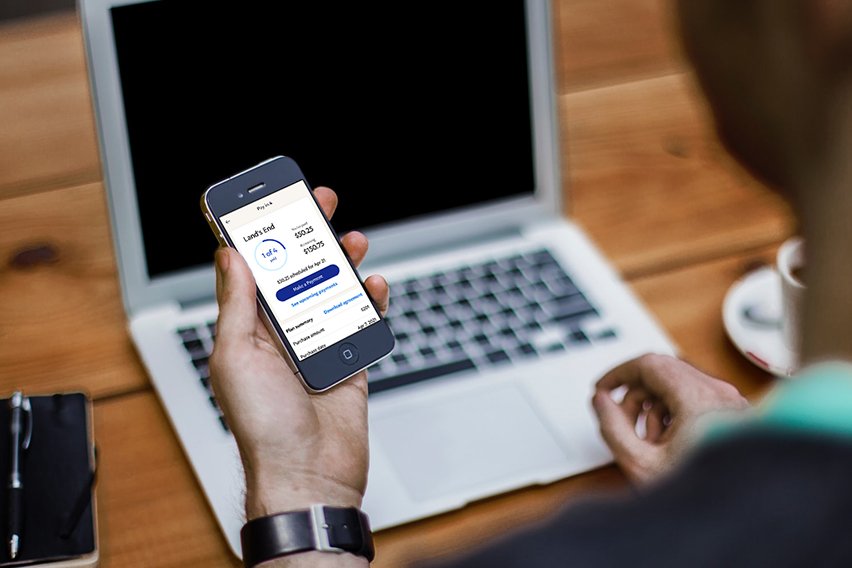 What Are the Maximum & Minimum PayPal Limits & How to Prevent Them?
What Are the Maximum & Minimum PayPal Limits & How to Prevent Them?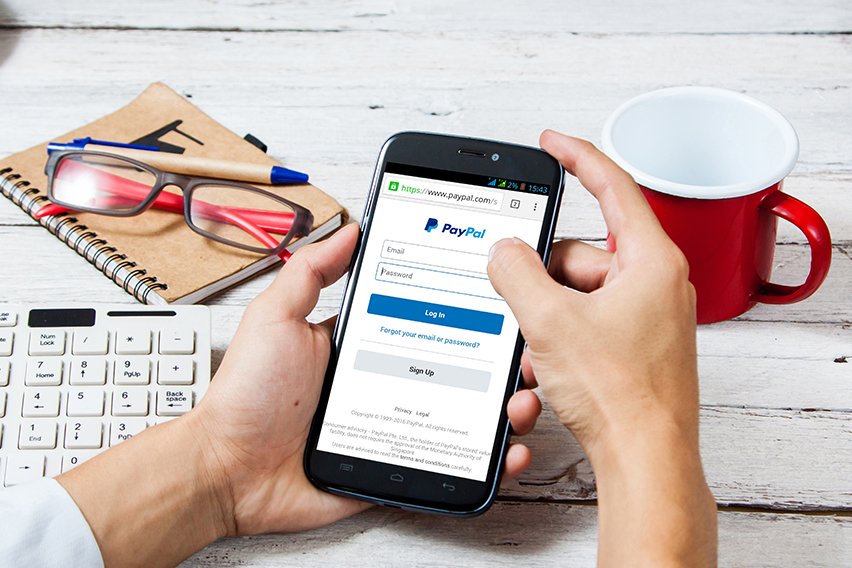 Is PayPal Safe for Sellers & Buyers? 7 Security Tips to Protect
Is PayPal Safe for Sellers & Buyers? 7 Security Tips to Protect 8 Ways To Accept Payments Online
8 Ways To Accept Payments Online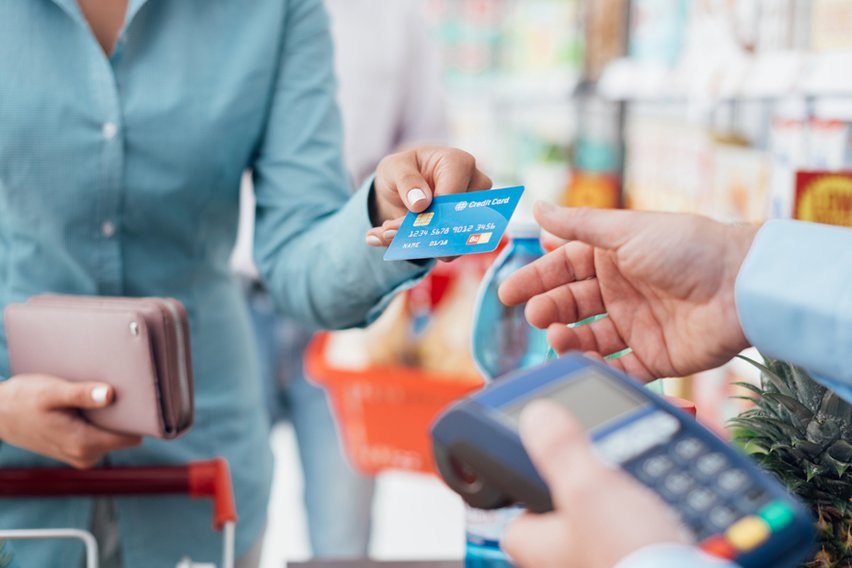 What Is a Credit Card Chargeback & How to Dispute It?
What Is a Credit Card Chargeback & How to Dispute It?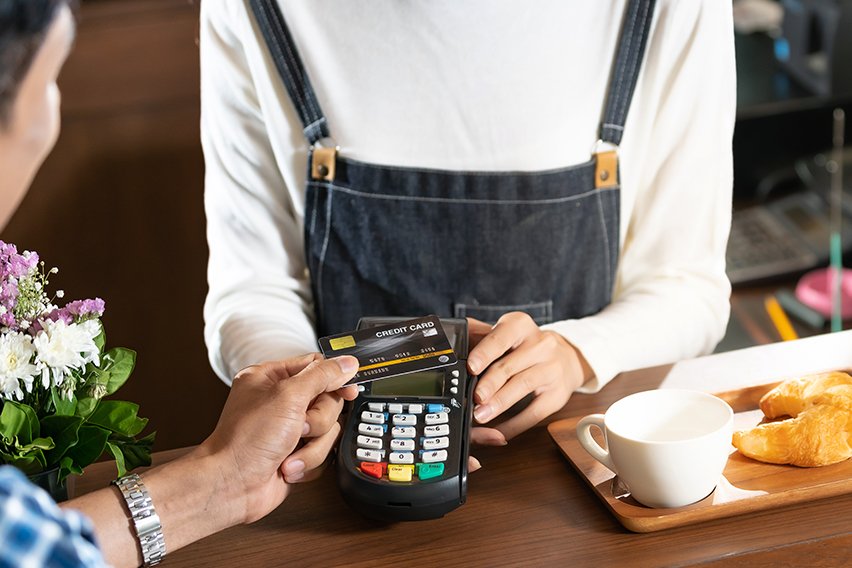 What Is an Emv Chip in a Credit Card? A Small Merchant Guide
What Is an Emv Chip in a Credit Card? A Small Merchant Guide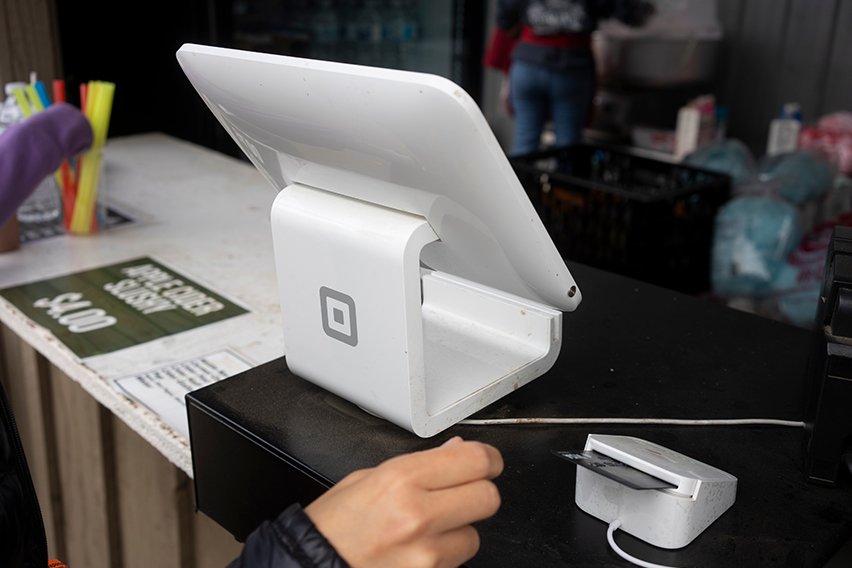 Complete Guide to the 5 Best Credit Card Processors
Complete Guide to the 5 Best Credit Card Processors